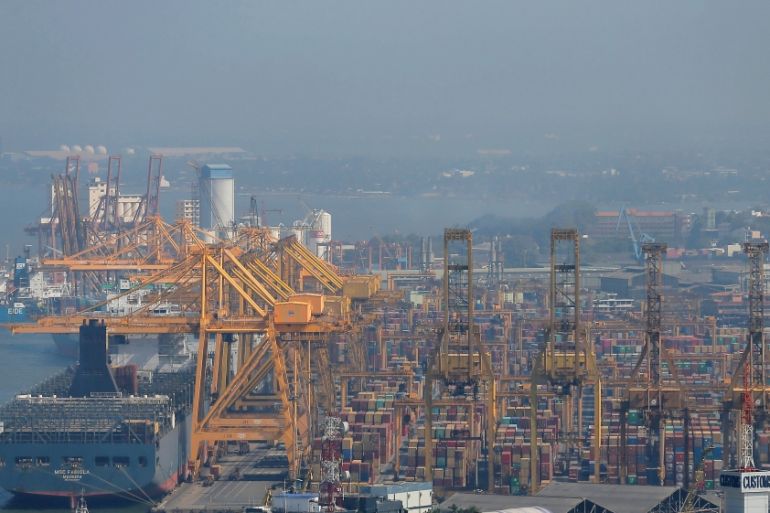Bank of China offers $300m loan to Sri Lanka
Offer comes as Colombo faces economic crisis triggered by political uncertainty in the South Asian island nation.

Bank of China, one of the country’s biggest lenders, has offered a loan of $300m to Sri Lanka‘s government, with the option of increasing the amount to one billion dollars.
The offer came as Colombo faces an economic crisis triggered by political uncertainty in the South Asian island nation.
Keep reading
list of 4 itemsChina’s economy beats expectations, growing 5.3 percent in first quarter
Inside the pressures facing Quebec’s billion-dollar maple syrup industry
Manipur’s BJP CM inflamed conflict: Assam Rifles report on India violence
Eran Wickramaratne, Sri Lanka’s junior finance minister, told the Reuters news agency on Tuesday that Sri Lanka was considering the Chinese offer.
He also confirmed that Sri Lanka had started negotiations to increase the amount of a swap deal with India’s central bank to one billion dollars, up from a previously negotiated $400m.
A series of credit rating downgrades amid a political crisis have made it harder for Sri Lanka to borrow as it faces record high repayments of $5.9bn this year, $2.6bn of which are due in the first three months.
“It’s extremely difficult to tap the international market due to tight conditions and rating downgrades,” said Wickramaratne, who is the state minister of finance.
“A government subcommittee will assess and negotiate on the tenure, size, and the price of this loan (with Bank of China). The cost of political crisis is high.”
There was no confirmation from Bank of China about the loan offer.
Investor confidence took a hit when President Maithripala Sirisena abruptly sacked Prime Minister Ranil Wickremesinghe in October and replaced him with pro-China former president Mahinda Rajapaksa and dissolved the parliament.
Sri Lanka’s top court then ruled the dissolution of parliament illegal and Wickremesinghe was restored to power in December.
But the seven-week-long crisis hurt the rupee and drove sovereign bond yields higher, straining state finances.
‘Debt trap’
By the end of 2018, nearly a quarter of Sri Lanka’s total foreign debt was owed to China, which has lent some eight billion dollars while building ports and highways and planning other major investments in the island state as part of its drive to build a 21st-century “Silk Road” across nations and shipping lanes.
A source with knowledge of the Bank of China offer told Reuters on Tuesday that Sri Lanka’s cabinet had already asked Finance Minister Mangala Samaraweera to negotiate the loan. It has to be repaid within three years, the source said.
Chinese President Xi Jinping launched the “One Belt, One Road” project in May 2017, pledging tens of billions of dollars to build ports, highways and power grids in about 60 different countries, linking China to much of Asia, Europe and Africa.
China is already one of the biggest investors in various infrastructure projects in Sri Lanka. But there has been criticism, both locally and internationally, and growing concerns that China has lured Sri Lanka into a debt trap.
Despite security concerns and demonstrations, the two countries signed a $1.12bn agreement, giving China a 70 percent stake in a major port in Sri Lanka – Hambantota.